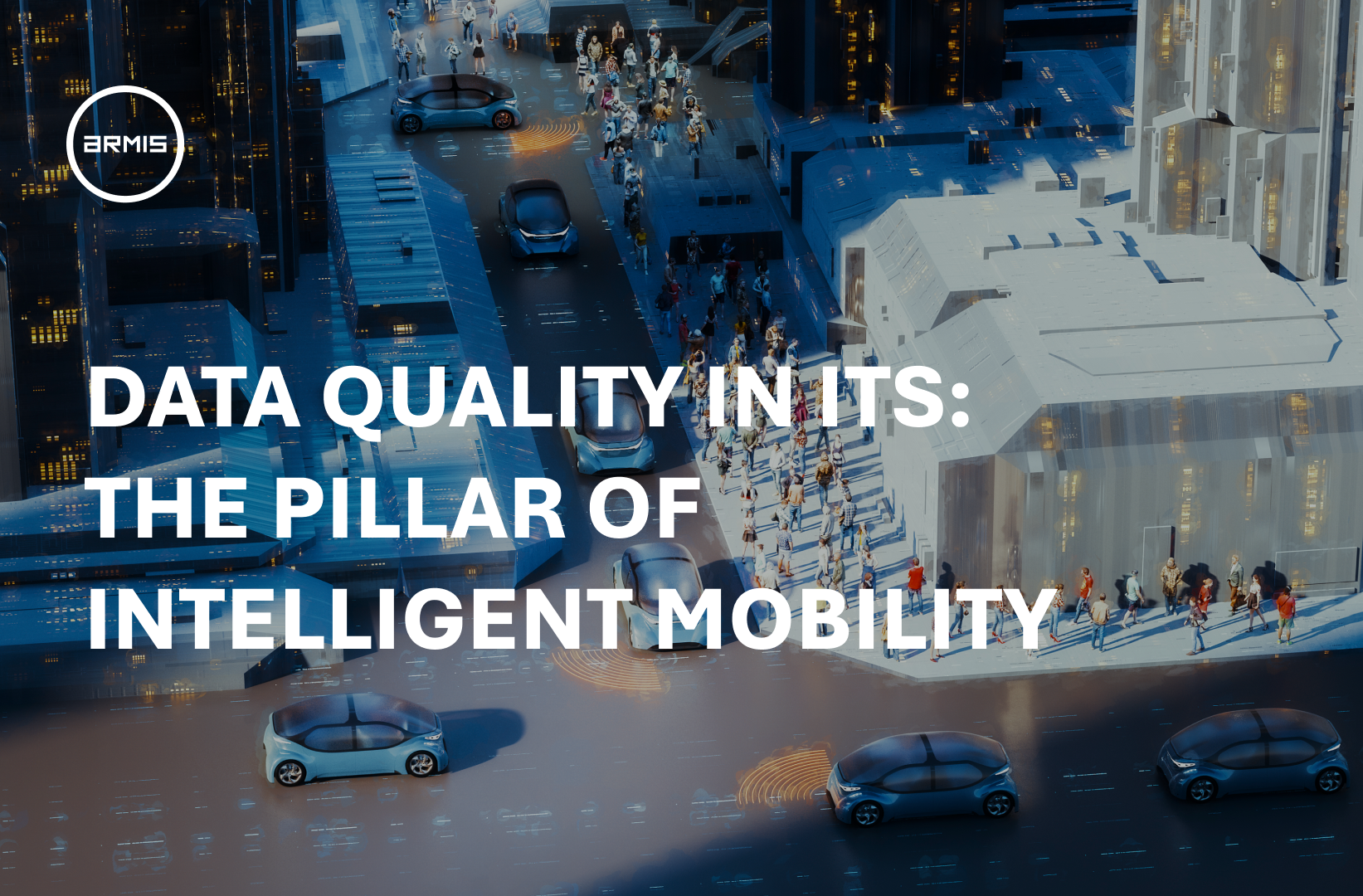
Data Quality in ITS: The Pillar of Intelligent Mobility
 Blog
Blog
Data quality is a fundamental element for the advancement of intelligent mobility, being the basis for efficient operations and well-informed strategic decisions.
In a sector where the accuracy and timeliness of information is crucial, guaranteeing reliable data becomes indispensable for optimizing mobility, reducing congestion and increasing road safety. It also enables the effective integration of different modes of transport, promoting more sustainable and connected mobility.
With the growth of artificial intelligence and the Internet of Things (IoT), collecting and analyzing high-quality data is even more crucial to improving the user experience and boosting the efficiency of urban transport. However, challenges such as the lack of standardization and the difficulty of interoperability between systems can compromise the effectiveness of the solutions adopted. Therefore, investing in the governance, accuracy and accessibility of data is not just a technical necessity, but an essential strategy for the future of intelligent mobility.
The Role of Data Quality in ITS
Intelligent Transportation Systems (ITS) rely on accurate and structured data to ensure traffic flow, monitor infrastructure and enhance road safety. However, the diversity and complexity of information sources requires a rigorous approach to ensure the reliability of data-based decisions. Standards such as ISO 25012 define essential criteria for data quality, but the great diversity of information used in ITS requires methodologies adapted to the operational reality of the sector.
Interoperability between different platforms and entities is one of the main challenges, making standardization an essential requirement to guarantee the usability and integrity of data in different contexts. Lack of uniformity in the structuring of information can make it difficult to share and integrate systems, reducing the effectiveness of ITS solutions and limiting their positive impact on urban mobility.
The Contribution of ARMIS and the NAPCORE Project
As part of the evolution of ITS, ARMIS has played an active role in the development of frameworks and methodologies for assessing data quality. Through its participation in the European NAPCORE Project, it has contributed to the creation of Data Quality Frameworks applied to specific data sets, such as Urban Vehicle Access Regulations (UVARs) and Alternative Fuels. These frameworks, based on recognized standards such as DATEX II, guarantee a more accurate assessment of information quality, promoting greater reliability and interoperability in transport systems.
The adoption of structured approaches to data quality management ensures that this concept is not limited to an abstract theory but translates into concrete improvements in intelligent mobility. The implementation of effective methodologies makes it possible to identify and correct inconsistencies, increasing the accuracy of the information used in traffic monitoring and management systems.
Impact on Urban Mobility and Digital Infrastructure
Data quality has a direct impact on the operational efficiency of transportation systems. Advanced traffic management solutions rely on real-time information to optimize road flows and make quick decisions that minimize congestion and improve road safety. However, inconsistent or incomplete data can compromise the effectiveness of these solutions, resulting in inappropriate decisions and negatively affecting the user experience.
Success stories show that implementing rigorous data quality management practices improves not only traffic flow, but also the sustainability of transport operations. Accessibility and transparency of information are determining factors for more efficient mobility geared towards the real needs of citizens.
The Future of Data Quality in ITS
The future of intelligent mobility requires a solid framework of governance, standardization and interoperability. The growing adoption of recognized standards, such as DATEX II, and specific frameworks for assessing data quality will be crucial to ensuring an effective digital transformation in the transport sector.
ARMIS has been a pioneer in applying these methodologies, not only in research and development, but also in practical implementation. Solutions such as DRIVE 3.0, an advanced integrated transport management platform, demonstrate the company's commitment to using quality data to optimize mobility and improve the user experience.
With the continuous evolution of technologies and the growing volume of data generated in the transport sector, the need to guarantee accurate and reliable information is becoming increasingly evident. Data quality is not just a technical requirement, but a strategic factor for the sustainable and intelligent development of urban mobility. We will continue to explore this topic in our upcoming articles, bringing you the best practices and innovations shaping the future of mobility.
See the articles we participated in here:
📖 APQ Magazine - Portuguese Association for Quality Read here
(Paid article written in Portuguese)
📖 Procedia Computer Science - “Data Quality: Revisiting Dimensions Towards New Framework Development” Read here


Share this article:
Prepare your company and your employees for the future. Contact us!

 Menu
Menu



